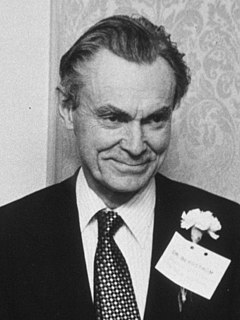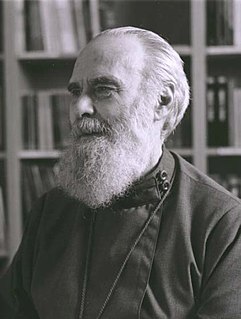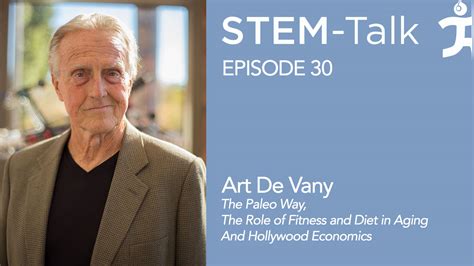Top 1125 Loses Quotes & Sayings - Page 19
Explore popular Loses quotes.
Last updated on September 19, 2024.
THE STORIES WE TELL fearlessly explores the textures of the human heart, finding a path toward hope through a Savannah that is jagged with class issues, faith misused, and broken trust. Henry loses you in a landscape peopled with secret keepers, storytellers and liars, and proves that in the end, love is the only reliable compass. This is everything you expect from Patti Callahan Henry—lyrical writing, characters worth rooting for, a sure-footed belief in the power of goodness—plus a twisty plot that will keep the pages turning long into the night.
Philosophy is antipoetic. Philosophize about mankind and you brush aside individual uniqueness, which a poet cannot do without self-damage. Unless, for a start, he has a strong personal rhythm to vary his metrics, he is nothing. Poets mistrust philosophy. They know that once the heads are counted, each owner of a head loses his personal identify and becomes a number in some government scheme: if not as a slave or serf, at least as a party to the device of majority voting, which smothers personal views.
It is appearances, characteristics and performance that make a man love an airplane, and they, are what put emotion into one. You love a lot of things if you live around them, but there isn't any woman and there isn't any horse, nor any before nor any after, that is as lovely as a great airplane, and men who love them are faithful to them even though they leave them for others. A man has only one virginity to lose in fighters, and if it is a lovely plane he loses it to, there his heart will ever be.
If our hearts and minds are not properly transformed, we are like musicians playing untuned instruments, or engineers working with broken and ill-programmed computers. The attunement of the heart is essential to the outflow of grace...We must aim at building the structures of God's kingdom but recognized that we will only create these through the transformation of our experience. Concentration on reformation without revival leads to skins without wine; concentration on revival without reformation soon loses the wine for want of skins.
This is the whole secret of non-attachment: live in the world, but don't be of the world. Love people, but don't create attachments. Reflect people, reflect the beauties of the world - and there are so many. But don't cling. The clinging mind loses its mirrorhood. And mirrorhood is Buddhahood. To keep that quality of mirroring continuously fresh is to remain young, is to remain pure, is to remain innocent. Know, but don't create knowledge. Love, but don't create desire. Live, live beautifully, live utterly, abandon yourself in the moment. But don't look back. This is the art of non-attachment.
Since many people have been asking me to elaborate on why I think "Inglourious Basterds" is akin to Holocaust denial, I'll try to explain what I mean as succinctly as possible, by paraphrasing Roland Barthes: anything that makes Fascism unreal is wrong. For me, "Inglourious Basterds" makes the Holocaust harder, not easier to grasp -- as a historical reality, I mean, not as a movie convention. Insofar as it becomes a movie convention, it loses its historical reality.
The traditional boundaries between various fields of science are rapidly disappearing and what is more important science does not know any national borders. The scientists of the world are forming an invisible network with a very free flow of scientific information - a freedom accepted by the countries of the world irrespective of political systems or religions. ... Great care must be taken that the scientific network is utilized only for scientific purposes - if it gets involved in political questions it loses its special status and utility as a nonpolitical force for development.
When a thing is bought not for its use but for its costliness, cheapness is no recommendation. As Sismondi remarks, the consequence of cheapening articles of vanity, is not that less is expended on such things, but that the buyers substitute for the cheapened article some other which is more costly, or a more elaborate quality of the same thing; and as the inferior quality answered the purpose of vanity equally well when it was equally expensive, a tax on the article is really paid by nobody: it is a creation of public revenue by which nobody loses.
There is a warning. The path of God-exalting joy will cost you your life. Jesus said, “Whoever loses his life for my sake and the gospel’s will save it.” In other words, it is better to lose your life than to waste it. If you live gladly to make others glad in God, your life will be hard, your risks will be high, and your joy will be full. This is not a book about how to avoid a wounded life, but how to avoid a wasted life. Some of you will die in the service of Christ. That will not be a tragedy. Treasuring life above Christ is a tragedy.
The states have the authority to change this voting system for president, right now, in fact, if they wanted, on an emergency basis, they could adopt a ranked-choice system, which simply allows you to go to the poll, and rather than rolling your dice and deciding whether to vote your values or your fears, you get to rank your choices, knowing that if your first choice loses your vote is automatically assigned to your second choice. It's kind of a no-brainer system. It works very well.
It seems to me, and I am personally convinced, that the Church must never speak from a position of strength. [These are shocking words.] It ought not to be one of the forces influencing this or that state. The Church ought to be, if you will, just as powerless as God himself, which does not coerce but which calls and unveils the beauty and the truth of things without imposing them. As soon as the Church begins to exercise power, it loses its most profound characteristic which is divine love [i.e.] the understanding of those it is called to save and not to smash.
We fought a military war; our opponents fought a political one. We sought physical attrition; our opponents aimed for our psychological exhaustion. In the process we lost sight of one of the cardinal maxims of guerrilla war: the guerrilla wins if he does not lose. The conventional army loses if it does not win. The North Vietnamese used their armed forces the way a bull-fighter uses his cape to keep us lunging in areas of marginal political importance.
I used to hate the urban environment and the urban din. But I realize now that it's really not that much different than living next to a waterfall for wildlife. Most wildlife - unless they're specifically adapted - avoid being around a waterfall or whitewater streams and rivers because it jams their sense of surveillance. They are more vulnerable, and their message loses intelligibility. Now, the ouzel is able to overcome that in various ways. Back to the urban environment, we're talking and delivering messages as if we weren't next to a waterfall, and that's a problem.
No, no, no, no! Come, let's away to prison: We two alone will sing like birds i' the cage: When thou dost ask me blessing, I'll kneel down, And ask of thee forgiveness: so we'll live, And pray, and sing, and tell old tales, and laugh At gilded butterflies, and hear poor rogues Talk of court news; and we'll talk with them too, Who loses and who wins; who's in, who's out; And take upon's the mystery of things, As if we were God's spies: and we'll wear out, In a wall'd prison, packs and sects of great ones, That ebb and flow by the moon.
I've always thought it would be fun to update "Hansel and Gretel." I'd have these white parents in the suburbs with an income of fifty or sixty thousand dollars. Daddy loses his job, and the wicked stepmother says, "We could get along, we could keep our Mastercharge, if you'd just get rid of those shitty kids." Finally the father hires a limo and tells the driver, "Drop 'em off on Lenox Avenue in Harlem at two in the morning." These two little white kids land there. They're menaced. And this supposedly nice black lady says, "Would you like some candy?"
The money men make from their willingness to work the least desirable hours is not a sign of discrimination against women, but a sign of the willingness of mostly married men to lose sleep to support the family as their wife loses sleep to feed the child. A willingness to do the uncomfortable shifts is one reason married men earn more than twice what never-married men earn. Men's contribution, made at night, need not be lost in the dark.
The more a man lives, the more a man creates, the more a man loves and loses those whom he loves, the more does he escape from death. With every new blow that we have to bear, with every new work that we round and finish, we escape from ourselves, we escape into the work we have created, the soul we have loved, the soul that has left us.
You ask me why I don’t love you, but surely you must believe I am very fond of you and if to desire to possess a person wholly, to admire and honour that person deeply, and to seek to secure that person’s happiness in every way is to “love” then perhaps my affection for you is a kind of love. I will tell you this that your soul seems to me to be the most beautiful and simple soul in the world and it may be because I am so conscious of this when I look at you that my love or affection for you loses much of its violence.
It was pleasant to me to get a letter from you the other day. Perhaps I should have found it pleasanter if I had been able to decipher it. I don't think that I mastered anything beyond the date (which I knew) and the signature (which I guessed at). There's a singular and a perpetual charm in a letter of yours; it never grows old, it never loses its novelty. Other letters are read and thrown away and forgotten, but yours are kept forever - unread. One of them will last a reasonable man a lifetime.
My mother taught me this trick: if you repeat something over and over again it loses its meaning, for example homework homework homework homework homework homework homework homework homework, see? Nothing. Our existence she said is the same way. You watch the sunset too often it just becomes 6 pm you make the same mistake over and over you stop calling it a mistake. If you just wake up wake up wake up wake up wake up wake up one day you'll forget why.
Your least frequent, most extreme exertions will have the greatest influence on your fitness. The peak moments of a workout count far more than the amount of time you spend working out. This is why a series of 40-yard sprints at full speed benefits you more than half an hour of jogging. It's also the reason why lifting a weight heavy enough to make your heart pound and your muscles burn counts more than spending hours at the gym always in your comfort zone, never truly challenging your body. When a work-out becomes an unvarying, monotonous routine, it loses its effectiveness.
[Man] is the only animal who lives outside of himself, whose drive is in external things—property, houses, money, concepts of power. He lives in his cities and his factories, in his business and job and art. But having projected himself into these external complexities, he is them. His house, his automobile are a part of him and a large part of him. This is beautifully demonstrated by a thing doctors know—that when a man loses his possessions a very common result is sexual impotence.
If a man who has committed many a misdemeanor does not repent and cleanse his heart of the evil, retribution will come upon his person as sure as the streams run into the ocean which becomes ever deeper and wider. If a man who has committed a misdemeanor come to the knowledge of it, reform himself, and practise goodness, the force of retribution will gradually exhaust itself as a disease gradually loses its baneful influence when the patient perspires.
The vanity of existence is revealed in the whole form existence assumes: in the infiniteness of time and space contrasted with the finiteness of the individual in both; in the fleeting present as the sole form in which actuality exists; in the contingency and relativity of all things; in continual becoming without being; in continual desire without satisfaction; in the continual frustration of striving of which life consists. . . Time is that by virtue of which everything becomes nothingness in our hands and loses all real value.
What deep and worthy love is so, whether of woman or child, or art or music. Our caresses, our tender words, our still rapture under the influence of autumn sunsets, or pillared vistas, or calm majestic statues, or Beethoven symphonies all bring with them the consciousness that they are mere waves and ripples in an unfathomable ocean of love and beauty; our emotion in its keenest moment passes from expression into silence, our love at its highest flood rushes beyond its object and loses itself in the sense of divine mystery.
Not to find one's way around a city does not mean much. But to lose one's way in a city, as one loses one's way in a forest, requires some schooling. Street names must speak to the urban wanderer like the snapping of dry twigs, and little streets in the heart of the city must reflect the times of day, for him, as clearly as a mountain valley. This art I acquired rather late in life; it fulfilled a dream, of which the first traces were labyrinths on the blotting papers in my school notebooks.
In bullfighting there is an interesting parallel to the pause as a place of refuge and renewal. It is believed that in the midst of a fight, a bull can find his own particular area of safety in the arena. There he can reclaim his strength and power. This place and inner state are called his querencia. As long as the bull remains enraged and reactive, the matador is in charge. Yet when he finds his querencia, he gathers his strength and loses his fear. From the matador's perspective, at this point the bull is truly dangerous, for he has tapped into his power.
There can be no truly moral choice unless that choice is made in freedom; similarly, there can be no really firmly grounded and consistent defense of freedom unless that defense is rooted in moral principle. In concentrating on the ends of choice, the conservative, by neglecting the conditions of choice, loses that very morality of conduct with which he is so concerned. And the libertarian, by concentrating only on the means, or conditions, of choice and ignoring the ends, throws away an essential moral defense of his own position.
I think that it's extraordinarily important that we in computer science keep fun in computing. When it started out, it was an awful lot of fun. Of course, the paying customers got shafted every now and then, and after a while we began to take their complaints seriously. We began to feel as if we really were responsible for the successful, error-free perfect use of these machines. I don't think we are. I think we're responsible for stretching them, setting them off in new directions, and keeping fun in the house. I hope the field of computer science never loses its sense of fun.
Bella: How could I live with myself when it’s my fault? None of you should be risking yourselves for me – Jasper: Bella, Bella, stop. You’re worrying all the wrong things, Bella. Trust me on this – none of us are in jeopardy… Our family is strong. Our only fear is losing you. Bella: But why should you – Alice: It’s been almost a century that Edward’s been alone. Now he’s found you. You can’t see the changes that we see, we who have been with him for so long. Do you think any of us want to look into his eyes for the next hundred years if he loses you?
The real searcher after truth will not receive the old because it is old, or reject the new because it is new. He will not believe men because they are dead, or contradict them because they are alive. With him an utterance is worth the truth, the reason it contains, without the slightest regard to the author. He may have been a king or serf - a philosopher or servant, - but the utterance neither gains nor loses in truth or reason. Its value is absolutely independent of the fame or station of the man who gave it to the world.
The thing that distinguishes social systems from physical or even biological systems is their incomparable (and embarrassing) richness in special cases. Generalizations in the social sciences are mere pathways which lead through a riotous forest of individual trees, each a species unto itself. The social scientist who loses this sense of the essential individuality and uniqueness of each case is all too likely to make a solemn scientific ass of himself, especially if he thinks that his faceless generalizations are the equivalents of the rich vareity of the world.
A writer with her work needs to be like a dog with a bone all the time. She needs to know where she's hidden it. Where she's stored the good stuff. She needs to keep gnawing at it, even after all the meat seems to be gone. When a student of mine says (okay, whines) that she's impatient, or tired, or the worst: isn't it good enough? this may be harsh, but she loses just a little bit of my respect. Because there is no room for impatience, or exhaustion, or self-satisfaction, or laziness. All of these really mean, simply, that the inner censor has won the day.
As there is no worldly gain without some loss, so there is no worldly loss without some gain; if thou hast lost thy wealth, thou hast lost some trouble with it; if thou art degraded from thy honor, thou art likewise freed from the stroke of envy; if sickness hath blurred thy beauty, it hath delivered thee from pride. Set the allowance against the loss, and thou shalt find no loss great; he loses little or nothing, that reserves himself.
Cupid and my Campaspe play'd
At cards for kisses - Cupid paid:
He stakes his quiver, bow, and arrows,
His mother's doves, and team of sparrows;
Loses them too; then down he throws
The coral of his lips, the rose
Growing one's cheek (but none knows how);
With these, the crystal of his brow,
And then the dimple of his chin:
All these did my Campaspe win.
At last he set her both his eyes -
She won, and Cupid blind did rise.
O Love! has she done this for thee?
What shall, alas! become of me?
If a betting game among a certain number of participants I played long enough, eventually one player will have all the money. If there is any skill involved, it will accelerate the process of concentrating all the stakes in a few hands. Something like this happens in the market. There is a persistent overall tendency for equity to flow from the many to the few. In the long run, the majority loses. The implication for the trader is that to win you have to act like the minority. If you bring normal human habits and tendencies to trading, you'll gravitate toward the majority and inevitably lose.
At physical death man loses his consciousness of the flesh and becomes conscious of his astral body in the astral world. Thus physical death is astral birth. Later, he passes from the consciousness of luminous astral birth to the consciousness of dark astral death and awakens in a new physical body. Thus astral death is physical birth. These recurrent cycles of physical and astral encasements are the ineluctable destiny of all unenlightened men.
Repentance out of mere fear is really sorrow for the consequences of sin, sorrow over the danger of sin — it bends the will away from sin, but the heart still clings. But repentance out of conviction over mercy is really sorrow over sin, sorrow over the grievousness of sin — it melts the heart away from sin. It makes the sin itself disgusting to us, so it loses its attractive power over us. We say, ‘this disgusting thing is an affront to the one who died for me. I’m continuing to stab him with it!’
Visitation reflects the era of the absentee father; parent time influences the re-emergence of the involved father. Visitation reflects the destruction of the family; parent time influences the reconstruction of the family. Parent time influences an era that understands that as either parent loses, so lose the children.
Many of the ugly pages of American history have been obscured and forgotten. A society is always eager to cover misdeeds with a cloak of forgetfulness, but no society can fully repress an ugly past when the ravages persist into the present. America owes a debt of justice which it has only begun to pay. If it loses the will to finish or slackens in its determination, history will recall its crimes and the country that would be great will lack the most indispensable element of greatness — justice.
I think about how truly interesting and odd it is that when a woman marries, traditionally she loses her name, becoming absorbed by the husband's family name - she is in effect lost, evaporated from all records under her maiden name. I finally understand the anger behind feminism - the idea that as a woman you are property to be conveyed between your father and your husband, but never an individual who exists independently. And on the flip side, it is also one of the few ways one can legitimately get lost - no one questions it.
Every widow wakes one morning, perhaps after years of pure and unwavering grieving, to realize she slept a good night's sleep, and will be able to eat breakfast, and doesn't hear her husband's ghost all the time, but only some of the time. Her grief is replaced with a useful sadness. Every parent who loses a child finds a way to laugh again. The timbre begins to fade. The edge dulls. The hurt lessens. Every love is carved from loss. Mine was. Yours is. Your great-great-great-grandchildren's will be. But we learn to live in that love.
Calvinism emphasizes divine sovereignty and free grace; Arminianism emphasizes human responsibility. The one restricts the saving grace to the elect; the other extends it to all men on the condition of faith. Both are right in what they assert; both are wrong in what they deny. If one important truth is pressed to the exclusion of another truth of equal importance, it becomes an error, and loses its hold upon the conscience. The Bible gives us a theology which is more human than Calvinism and more divine than Arminianism, and more Christian than either of them.
Profound meditation in solitude and silence frequently exalts the mind above its natural tone, fires the imagination, produces the most refined and sublime conceptions. The soul then tastes the purest and most refined delight, and almost loses the idea of existence in the intellectual pleasure it receives. The mind on every motion darts through space into eternity; and raised, in its free enjoyment of its powers by its own enthusiasm, strengthens itself in the habitude of contemplating the noblest subjects, and of adopting the most heroic pursuits.
Have you watched it? A man who is too greedy about money, by and by starts having the qualities of money. He becomes just money. He loses spirituality, he is no more a spirit. He is reduced to a thing. If you love money, you will become like money. If you love your house, by and by you will become material. Whatsoever you love, you become. Love is alchemical. Never love the wrong thing, because it will transform you. Nothing is so transforming as love. Love something which can raise you higher, to higher altitudes. Love something beyond you.










































